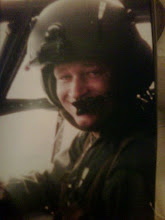My next story about a friend and his struggle to get care for PTSD is being delayed for another day - sorry.
Every once in awhile, someone drops a newspaper article or story from around the world about PTSD, life after Iraq/afghanistan, Military suicide rates etc. I can't imagine why! Of course, you know the drill - veteran care and suicide is my cause and will be for the rest of my life. Its kinda close to home.
Today I received two links:
Link # 1 is about a Maine vet who says he has been saved by a story about a Massachusetts Marine who took his life after running into the road blocks I talk so frequently about.
Link #2 is the story of that young Marine who lost the fight.
Aside from the shame I feel for the failure of our system to provide for one Marine, lost to his family and friends forever, I am proud that there are still Americans out there who feel the pain of every loss.
Here are the links:
#1
http://thephoenix.com/Boston/News/78245-Gulf-War-vet-saved-by-Phoenix-article/#anchormore
#2
http://thephoenix.com/Boston/News/78044-Soldiers-committing-suicide/
I ask you this: If you know a service member who is struggling to adjust to life after Iraq, Afghanistan or other points unknown in the Global War on Terror. Talk to them. Beg them to get help. Make the call for them and most important of all, follow up to find out if they are getting help or running into barriers.
I know it becomes difficult and interrupts your lives but they need you. They need us. Please - help them overcome the barriers.
TIA
Earl
Subscribe to:
Post Comments (Atom)










1 comment:
Read the articles twice. I'm a nurse and I can't formulate an intelligent response. Sobering on many different levels. How do the pieces get put back together again? The mind remains a stubborn mystery, and there's so much yet to learn regarding the mind/body response. I've been studying unconventional and other culture's approaches with returning warriors. These are beyond the 'cookie cutter' approach of current treatment, and seem to be gaining some attention and utilization by some care providers at Ft Hood (I believe) and by the National Guard in Montana.
Thank you for posting the articles. Continued strength and hope for you and your family each day.
Post a Comment